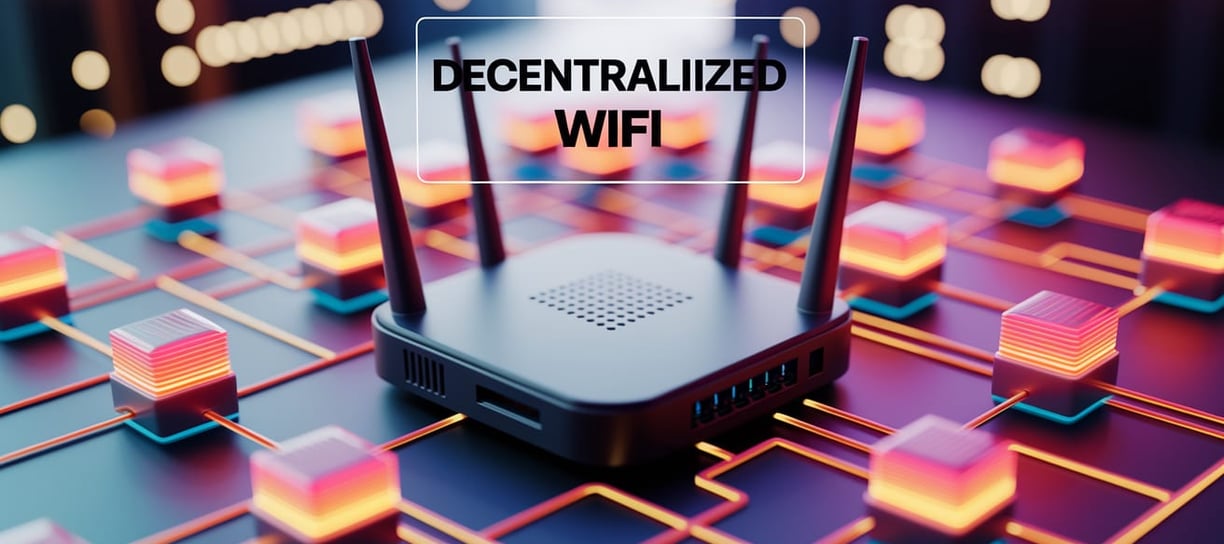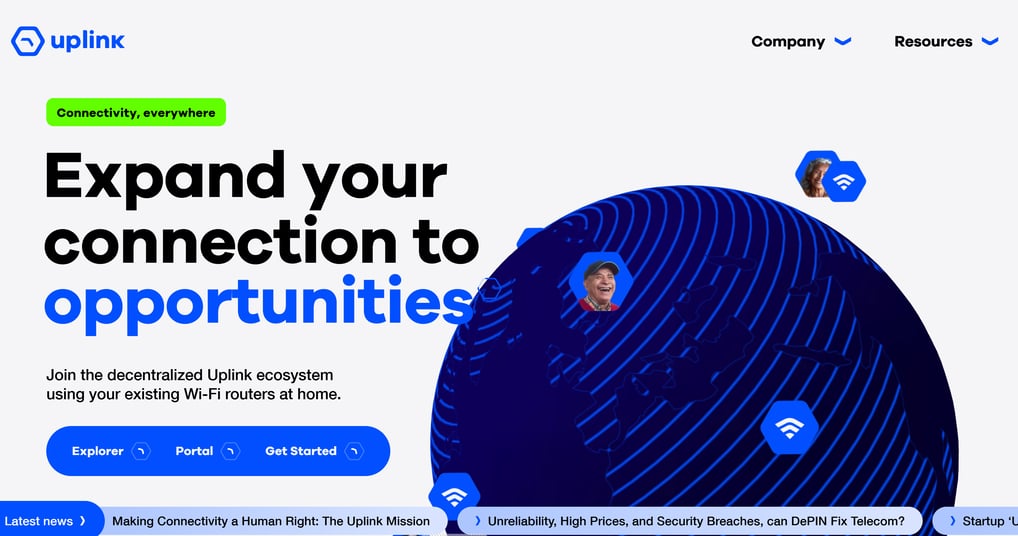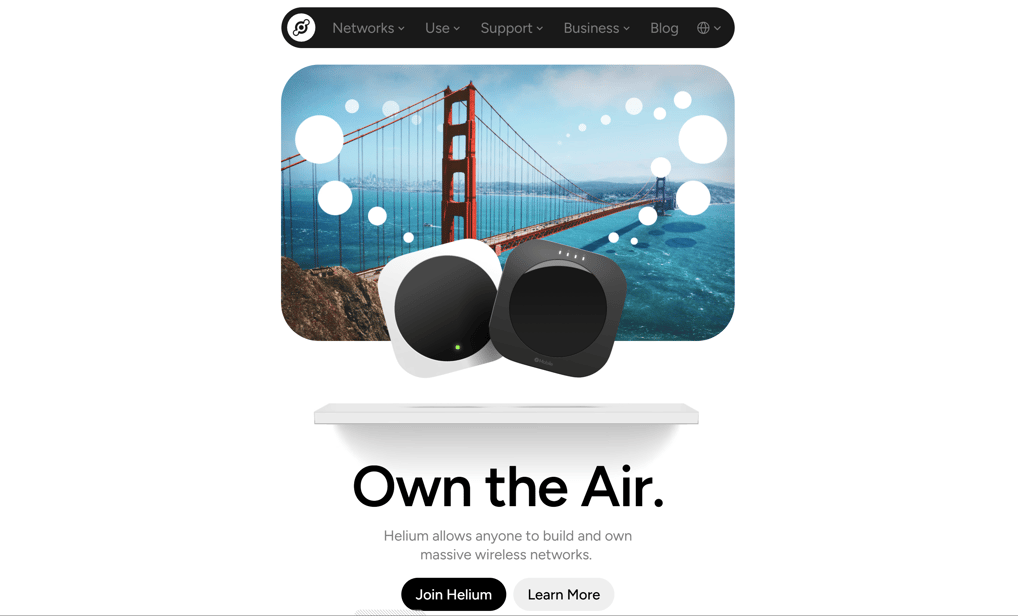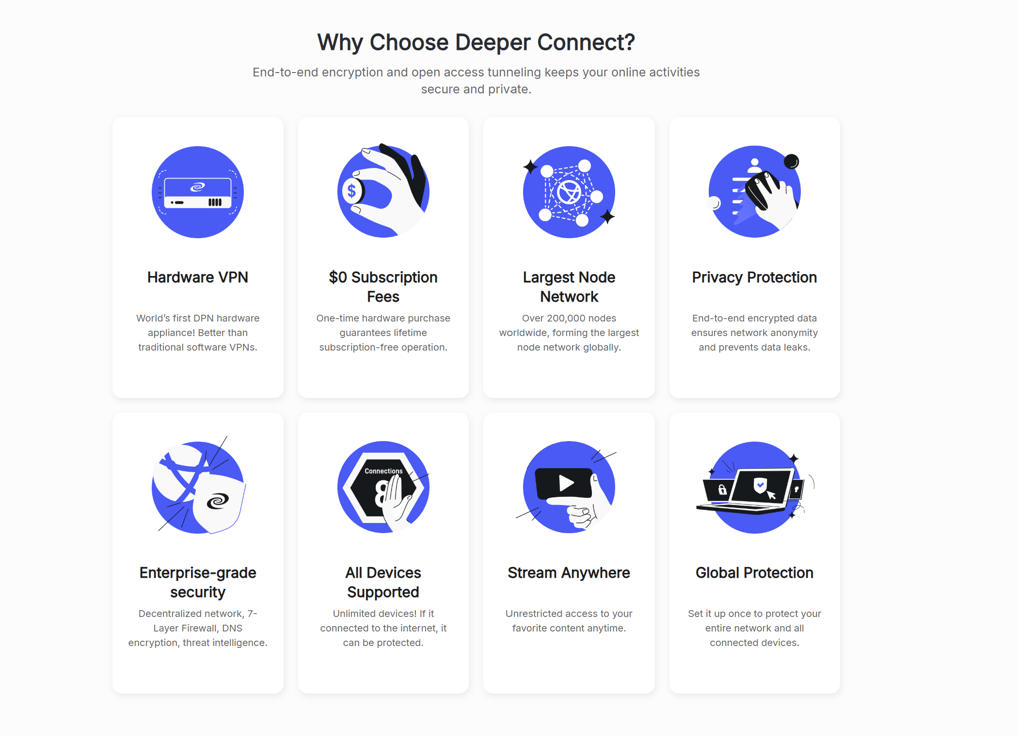Decentralized WIFI : Why it might be a better option
4/16/20255 min read


Decentralized WiFi Routers: The Future of Connectivity
In recent years, the concept of decentralized internet infrastructure has gained traction as an alternative to traditional, centralized internet service models. At the heart of this movement are decentralized WiFi routers—devices that not only connect users to the internet but also contribute to a broader, community-driven network. These routers operate outside the control of singular corporations or ISPs, creating more democratic, resilient, and often more secure web access.
Decentralized WiFi routers typically leverage mesh networking, blockchain, or peer-to-peer protocols. In a mesh network, each router acts as a node that can relay data to and from neighboring nodes, ensuring that information can travel efficiently without relying on a central server. This setup enhances coverage and reliability, especially in areas with weak or no traditional infrastructure. Blockchain-based routers add another layer by using tokens and smart contracts to incentivize sharing bandwidth and maintaining uptime.
There are several types of decentralized WiFi routers available on the market today. Some are built purely for mesh networking—like the Netgear Orbi or Google Nest WiFi—which technically decentralize the network internally but still operate within a centralized ISP framework. On the other hand, routers like Helium's Hotspots, Althea, Mesh++, and Nodle incorporate full decentralization by encouraging users to share internet bandwidth in exchange for cryptocurrency or other digital incentives.
Prices for decentralized routers vary widely depending on their complexity, technology, and intended scale. Entry-level mesh systems like TP-Link Deco start around $150 for a three-node system, suitable for home or small office use. More advanced blockchain-enabled routers such as Helium Hotspots can range from $400 to over $1,000, depending on the manufacturer and market demand. Custom or industrial-grade solutions—often used by communities or municipalities—can cost several thousand dollars but offer robust features like solar power, long-range antennas, and built-in crypto mining capabilities.
The main function of decentralized routers goes beyond simply providing WiFi. They enable users to participate in a decentralized network that can operate independently of centralized ISPs. This has major implications for digital equity, particularly in underserved or rural areas where traditional ISPs are absent or prohibitively expensive. Communities can create their own networks, fund them locally, and manage access without gatekeepers.
Also, I know your probably thinking this by now, and no.. just because these wifi routers connect to the blockchain network in order to connect to the web does not mean it costs more money to pay for the use of your internet. Decentralized WiFi routers that connect to a blockchain—sometimes called DeWi (Decentralized Wireless) routers—do not typically cost more to run monthly compared to traditional routers. In fact, in many cases, they can cost less or even generate income for users.
Another benefit is resilience. Because the network doesn't rely on a central point of failure, it can withstand outages and censorship attempts more gracefully. In politically unstable or authoritarian regions, decentralized routers offer a way to bypass surveillance and internet blackouts, making them tools for activism and information freedom.
The economic model behind many decentralized networks is also worth noting. Projects like Helium use proof-of-coverage mining, where routers validate each other's presence and network availability to earn cryptocurrency. This incentivizes users to keep routers online and strategically located. Althea, by contrast, lets users pay for bandwidth on a pay-as-you-go basis using crypto, which can be cheaper and more flexible than monthly ISP subscriptions.
Despite their potential, decentralized WiFi routers face hurdles. Regulatory scrutiny is one, especially in countries where spectrum use is tightly controlled or where ISPs wield significant political influence. Technical complexity can also be a barrier, as not everyone is equipped to install and maintain a node. Security is another concern—while decentralization can enhance privacy, poorly configured nodes can become vulnerable to attack. So if you were to buy one now, there's no gurentee that the network will be any good in your area. Make sure to check beforehand. With that being said decentralized routers do have a very strong proof of concept, and is still a new and blooming idea.
Still, the innovation continues. Startups and open-source communities are experimenting with hybrid systems that combine mesh, blockchain, and AI for dynamic load balancing and real-time threat mitigation. Others are integrating decentralized identity systems, enabling private access and encrypted communication between nodes without centralized logins.
The environmental impact of these systems is another emerging discussion. Compared to massive data centers and centralized infrastructure, decentralized routers tend to use less energy and can be powered by renewable sources like solar. Some projects have even designed routers with biodegradable casings or recyclable components to minimize e-waste. Hearing about the blockchain only 4 or 5 years ago you probably would have assumed it would be the opposite. That's right decentralized assets have come a long way in making sure that it doesn't cause a negative impact on the environment.
As more people become disillusioned with corporate control over the internet, decentralized WiFi routers present a compelling alternative. They empower individuals and communities to take back control of their connectivity, reduce dependence on monopolistic ISPs, and create more equitable access to information. While not without challenges, the movement toward decentralized networking aligns with broader trends in digital autonomy, privacy, and resilience.
In conclusion, decentralized WiFi routers are not just gadgets—they are infrastructure for a new type of internet. Whether it's through mesh networks, blockchain incentives, or community-powered installations, these routers represent a fundamental shift in how we think about connectivity. As technology matures and adoption grows, we may see entire neighborhoods, cities, or even countries operate independently of traditional ISPs, ushering in a new era of decentralized digital empowerment.
TOP 3 DECENTRALIZED WIFI NETWORKS IN AMERICA :
01.Uplink
This ones a bit complicated. In simple terms you buy an Uplink capable device. Then you can earn crypto as you share a network, because your partly providing the network. Everything is encrypted and sandboxed, so it has been proven to be safer then regular wifi. I can't fully explain it, so check them out if that sounds interesting to you.
02. Helium
In a nutshell this follows a similar approach to Uplink. You plug in a Helium hotspot. It shares secure public WiFi. People pay tiny fees to use it. You earn crypto automatically.
03.Deeper Network
Deeper Network lets people share their internet with each other in a safe way. You use a small device that connects to your home internet. This device lets others use a small part of your internet, and you can use theirs too. Everything is private and encrypted, so no one can see what you're doing.
You get paid in crypto (called DPR tokens) for sharing your internet.
It’s like a VPN, but instead of one company, it’s run by everyone together.
This helps people stay private online and get around internet blocks.
Keep In mind ...
These things aren't toys, they're tools. So if you decide to get into this idea or area of tech. I would highly suggest learning about how it works before hand, and getting a solid grasp on understanding how to use these tools. Otherwise you might just waste your money. That being said I think this a great idea and does what decentralization does best and really puts the internet back into the hands of the user.






